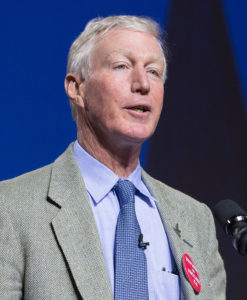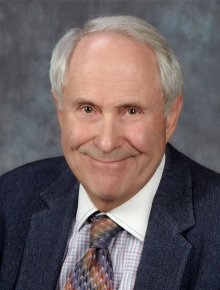Preamble
It would be unfair to dismiss the authors of Moment of Truth as grumpy, mostly white old men. This hastily edited textbook for Wexiters and Fair Dealers is a compelling read making a plausible case for a colony separating from its metropolitan or imperial power. The book is published by Sutherland House and edited by Jack Mintz, Ted Morton and Tom Flanagan.
The list of grievances are long and familiar: equalization; Bill C-69; the NEP; official bilingualism; special treatment of Quebec; under-representation in Parliament; supply management; the federal carbon tax; and judicial decision-making.

Jack Mintz Source: UCalgary.ca
Although not intended, the book makes a persuasive case against the imperial-style capitalism which western Canada has been subject to since before Confederation. In this review/opinion piece, we examine the economic, political, cultural, legal and strategic issues and raise questions throughout about the analysis which makes a strong case for separatism. We try to present a critical, but balanced, analysis of this important intellectual declaration for western separatists.
Economics
Over the 115 years of Alberta’s existence as a province, the production and extraction of basic commodities has been a fundamental undertaking of private capitalist production. In the case of Canada’s early development, the Metropole was London which supplied the investment dollars for the undertakings of the fur, fishing, mining, railroad development for the colonies until the first World War. Colonies simply did not have the wherewithal to generate the necessary surplus by its workers and managers to finance things like railroads unless a government guarantee was attached.That situation remains pathetically true today with recent examples of TC Energy and the TransMountain Pipeline pipelines.

Exploitation of Canada’s resources outside Central Canada remained the prerogative of the central government until the resource powers transfer took place in 1930. Alberta remained and is still hostage, and we say this advisedly, on outside capital to develop its agriculture and its oil, gas and oilsands industries.
By the 1920s, Canada’s capital markets had been

forced to grow up since capital in London was directed to the fight for King and Country. Dependency on outside capital shifted to New York and domestic pools of capital now resided on Bay and St. Jacques (James) Streets. Central Canadian capital came in the institutional form of banks, insurance companies, investment dealers, and trust companies. These organizations aggregated the fortunes of bank owners, brewers, bankers, distillers, railroaders, industrialists like Max Aitken, and timber barons. Reliance for large investment capital still remained with the need to go primarily to the New York markets.
(Parenthetically it remains true in Alberta today where the spectacle of Kenney cozying up to the Saudis for their petrochemical investment dollars is pathetic- but hardly surprising. His supporters who believe in free enterprise must be aghast.)

The depression illustrated the harsh nature of the exploitive relationship by the metropole over the periphery. It is rather unusual that there is very little mention in the book about the Depression experience. This is odd since many of the authors would have parents who grew up during the Great Depression. Maybe that is why they wish to concentrate on political sins rather than also think about the economic sins of our system.

Banks controlled from Bay and St. James streets began foreclosure proceedings which led to the emergence of William Aberhart and Ernest Manning, the father of one of the authors. Moreover, the CPR and central Canadian manufacturers, allied with retail distributors like Hudson’s Bay and Eaton’s, continued to collect rents from tariff protected industries causing desperate western Canadians families to pay more for their processed goods imports from across the border.
This form of exploitation, the authors properly point out was aided and abetted by Ottawa being beholden to the more populous provinces of Upper and Lower Canada. While there was some help from the central government to keep western provinces from defaulting (Calgarian R.B. Bennett was in charge from 1930-1935), the policy was still very much in the interest the Dominion government.
Politics
By 1905, Rupertsland was safely consolidated (and subdued) with Ottawa accepting the demand for provincial status with several “Buts.” The aspirations of Frederick Haultain, Premier of the Northwest Territory, to lead a big territory (Buffalo) were rejected and Alberta and Saskatchewan were born twins. The authors place considerable emphasis on the population weight and the desirability for a bigger province Buffalo) and with it a bigger future say in the territory’s bounty. One hundred years on, the promise and optimism has not come to fruition.

Another But was no powers over resources. This history is clearly conveyed in the book. (Generally, the book skips around indigenous land claims.) The message from Ottawa appeared to be “show us how well you govern, then maybe, sometime, (as all imperial-capitalist powers are wont to do), more crumbs will be granted.”
The authors, including Preston Manning and Ted Morton, accept that western representation by population in the Commons is not the main problem with Canada’s parliamentary system. Some seat adjustments would give more seats to the west, but unless all four Western provinces voted as a block, there could be no real bargaining power in the Commons, now or in the foreseeable future. After 115 years, both provincial populations (B and SK) would still not carry the weight of Quebec or Ontario alone today. This will likely be the case for some time.

The most egregious insult to Western and Alberta’s political claims for the authors (and I agree) is the unelected Senate. Three Maritime provinces with less population than Alberta have 24 seats which is all the four western provinces have with a population over 4 times that of these three provinces. The travesty of being unable to reform the Senate, because Maritime provinces have no desire to do so is an irritating phenomenon, no doubt. It is however “water under the bridge” and is no use wasting time. It is like progressives in the United States believing the Second Amendment was an historical aberration and should disappear. In Canada, like the States there are too many institutional interests to defeat by the political way. Thinking that Martimers are going to give up over-representation in the Senate is a real stretch, even in the face of a serious separatist movement in western Canada.
Harper’s modest attempt to acknowledge Alberta’s senatorial elections foundered on the shoals of a abstruse Supreme Court judgement. This insult to Parliament is a fair claim. And, as the Fair Deal Report and Moment of Truth contributors agree the federal bureaucracy and judiciary remain too concentrated with in the hands of the descendants of the Laurentian elite dominating positions within Ottawa.
Political Extraction
The more recent political extraction – through equalization, the redistribution of income taxes from high-income provinces to low-income provinces, is to support public services- that is what government does and IS EXPECTED TO DO. The equalization formula allowed Quebec and the Atlantic provinces, and to a lesser extent Manitoba and Saskatchewan to keep their personal and corporate taxes lower to maintain existing services.

Without federal fiscal support, taxes in these provinces would have to go up and possibly chase investment and jobs away as conventional wisdom would suggest. Other programs such as Employment Insurance seasonal benefits have also helped these “poorer” provinces and are added to the righteous ire of westerners who see Atlantic Canada and Quebec as ne’er do wells living off the goodness of hard-working Canadians outside these regions.
Equalization, not seasonal benefits, is one of the prices of a civilized, somewhat predictable, society where sharing is part of the equation. Look down south and see if Wexiters/ Fair Dealers actually want to go down that path. Wexiters want a “fair deal” but do they realize that many of their intellectual patrons, like Jack Mintz, also want low taxes and small government which means agricultural and other government subsidies would go- but probably not the favourable tax and royalty scheme.
Financial
And so, what are the solutions? Separation and/or annexation with the U.S. makes the most sense. One key question remains: “does Alberta have sufficient domestic capital so as not to be held captive by metropolitan financial and commercial interests- namely New York, Toronto or Houston?” Why would Alberta wish to become independent if we are still economic vassals without our own capacity to build our communities in the ways Albertans value?
How much capital does it take to fully develop the oil sands, to production levels of 4 to 5 million barrels per day – a key objective of the separatists? Conservatively, companies like Cenovus, CRNL, and Suncor, which collectively control about two-thirds of the production, would need upwards of $100- billion to bring this production on. Is this supposed to be sourced solely in the new Republic of Alberta?
The foregoing doubt leaves one with the strong impression that a key part of the separatist agenda is gaining control over pools of savings of Albertans held in trust for CPP beneficiaries and those of provincial pension plans. The consolidation of investment power into the hands of AIMCo only makes sense in this context. This frightening prospect remains a clear and present danger for Albertans moving into their senior years.
A Fraser Institute report written by Bill Robson, of the C.D. Howe Institute in November 2003 speaks of the injustice of the CPP design to Alberta. Along with A Separate Pension Plan for Alberta a collection of essays (including one by Robson) published in 2000 why are we dealing with this matter in 2020! So much for the relevance of academics until some serious politician gets their hands around this!
(Parenthetically, few journalists or scholars have not drawn attention to is the fact that now Alberta’s energy production is primarily the oilsands and that production is and will largely be the domain of three corporate entities- Suncor, CNRL and now Cenovus. This suggests that future provincial cabinets will be required to pay more and more attention to this group of oligopolists demanding preferences for their claims- Little, Laut, Edwards and Pourbaix will be on speed-dial. Is this what the authors of Moment of Truth want to see?
On the question of capital flight versus investment attraction which the Kenney government is always eager to highlight when the NDP was in power, Ted Morton misconstrues the meaning of purchases of foreign companies’ oilsands assets by the Big Three as “capital flight from western Canada.” Rather these sale transactions represent the conclusions of rational financial analysis of large multinational companies who deploy and redeploy billions in capital all over the world. Perhaps the inhospitable Canadian, but not Alberta, regulatory environment did play a role, but corporations must do the right thing for their shareholders?)
So just to bring in a pinch of world reality, as the Teck Frontier decision shows, and to a certain extent, the province’s bet on TC Energy’s Keystone XL pipeline project,

international finance capital are weary and wary of financing new major fossil duel developments.
This wariness will persist and become more problematic as the climate emergency accelerates. The election of Joe Biden as U.S. President and his pledge to revoke the Keystone XL permit underlines that it is not only in Canada that courts and regulatory decisions do not always go the way of the energy industry.
The lack of enthusiasm by international finance capital perhaps explains the UCP’s gambit to take over the Alberta portion of the CPP’s assets and the consolidation of investment funds taking place inside AIMCo. This consolidation model is based on the Caisse de Depot’s success or otherwise, as the manager of Quebecers’ public pension plans.
In the concluding chapter in A Separate Pension Plan for Alberta, then University of Alberta economics professor Bev Dahlby sums up the following lessons from the book:
- May be a province-building investment vehicle;
- Convenience to tailor with other provincial pension schemes;
- Reduce the complex interplay between the federal income schemes like OAS and GIS and a provincial pension plan;
- Exploit Alberta’s demographic and labour market advantages- (lower premiums); and
- Pursue advantages of a contributory pension plan
Even if AIMCo could convert all its investment in public servants’ pensions (and/or APP) assets into oil and gas stocks or debt, this will not produce new capital for Suncor, CNRL’s, Cenovus/Husky to significantly expand their footprints in the boreal forest. Reinvestments based on a net cash flows would help to capture $7 to 10 -billion a year but what institutional Investor in their right mind, including a public sector pension fund, reinvest all the money in oil and gas, particularly at this time? It would vitiate the key principle of diversification.
Even the use of ATB Financial as a supplier of capital to the oil sands would be fraught since it would be placing bets of its depositors on the short and long-term viability of oil sands production. In sum, the authors focus on trade flows and intergovernmental transfers but omit the capital account
Culture
The forgoing political and economic claims are valid as far as they go, but they don’t go far enough to entangle the complex puzzle of Canada’s political economy. Canada’s Laurentian elite is not primarily the Liberal machine but rather a result of the intermarriage of Canada’s wealthy families who have the capacity,

(through their boardroom ties, neighbourhoods, private schools, philanthropy, political backrooms, and travel companionships) to comprehend the world is changing while still managing to decide for others which federal policies will truly benefit their one per cent. Yes, there may be relations in Calgary’s Mount Royal and Vancouver’s Shaughnessy neighbourhoods, but they remain country cousins. It is the Laurentian economic elite which the authors should be railing about as opposed to being the intelligentsia for international petroleum capitalists whom they think will be more beneficent than those from the Laurentian elite.
A frustration voiced in Michael Binion’s introduction suggests Canadians basically don’t understand Albertans- that Alberta’s “resentments are under-estimated by the rest of Canada.” He claims that Albertans’ shared vision is of “the future” and not of the “past.” That claim may may have merit but the challenge for Alberta’s leaders is to live the current reality, not in the past or looking to the future. The fact that Albertans have the highest income in the country and are all perceived to live in big houses and drive big pick-ups trucks makes some Canadians envious of these nouveau riche of western Canada. Of course that is not the “real picture” of Alberta as Albertans’ disdain for the “Liberal Government,” its fixation on Quebec, and its proclivity to step in Alberta’s way, is not shared completely in Alberta.

This disdain of Laurentian elites is very much rooted in Alberta’s political culture which is inherently optimistic and expansive. Unlike central and eastern Canada, where it was important who your grandfather was, what school and churches you attended, Albertans were interested in capacities, not inheritances. Albertans in general want to treated on merit as opposed to historically constituted authority or ancestral agreements.
The Law and further insults
Several chapters were highly disturbing and, one might say in impolite company, traitorous.

In chapter 10, University of Texas Austin law professor Richard Albert goes into detail on the six-(main) step process informed by the Clarity Act, the Re: Secession of Quebec case, and current international, constitutional jurisprudence on how independence may proceed. Albert walks through these steps and processes. He concludes that if a legitimate referendum question with a clear result leads to negotiations and the other provinces and federal government do not agree, then a unilateral Declaration of Independence could legitimately ensue. He discusses the possibility of Saskatchewan being part of the mix. A key aspect of the result would be recognition by foreign states: France, the U.S., and the U.K.
Barry Cooper’s chapter is a polemic – a reply to national newspaper columnists such as a Gary Mason, Andrew Coyne and Eric Reguly, who he sees as condescending mouthpieces of the Laurentian elite. Cooper is by far the angriest of the dozen or so grumpy old white. Here are a few choice quotes:

Barry Cooper Source: University of Calgary
On Gary Mason:
A few weeks later, Gary Mason based in Vancouver and Toronto’s eye on the West, weighed in with his own interpretation of the post-election political landscape. He was indignant that Jason Kenney “would like to carve what the same level of independence as Quebec has.” Quoi? Quel Scandale? Fair point
On Eric Reguly
On October 24, 2019 in the Globe and Mail, Eric Reguly said westerners and especially Albertans were punishing themselves. They should have been “sophisticated” like the admittedly “cynical,” which is to say, very corrupt electorate of Quebec, and voted strategically to “keep the federal favour-train running,” Ouch!
On Andrew Coyne:
Even Andrew Coyne, writing in the National Post on October 26, 2019, half-endorsed Reguly’s notion that the Government of Canada is really a “National protection racket.” Evoking The Sound of Music, he begins: “How do you solve a problem like Alberta?” He asks with indignation rather than irony: what can they be complaining about now? The Liberal’s have just bought them a pipeline. Touché
Strategic
A somewhat frightening commentary by David Bercuson, a well known military historian, is entitled “Security Considerations for an Independent Alberta.” Bercuson is building his preferred and expert version of a new Alberta Security and Intelligence Service. He admits entry into a North American Security-Intelligence-Military group will not be cheap. Nevertheless, he suggests that Alberta is indeed on right path to building this capacity, speaking positively about ASSIST, the Alberta Security and Strategic Intelligence Unit within the Solicitor General’s department. Reference to this unit, which did not appear on searches in the Government of Alberta websites, was an undated document ASSIST, “Security Intelligence Framework Discussion.” A word search did reveal information from the appropriately titled website SPIE.ca which describes the unit as “responsible to the Government of Alberta for security issues surrounding the protection of Alberta’s Critical Infrastructure from human induced intentional threats.” Professor Bercuson goes on to disclose the rationale of ASSIST in strategically preparing for a sovereign Alberta (pp. 239-241).
The contributor also makes favourable reference to Bill 1, The Critical Infrastructure Defence Act whose punitive provisions and all-encompassing definitions may be subject to court challenges in the future.
 David Bercuson Source: The Globe and Mail
David Bercuson Source: The Globe and Mail
Bercuson suggests leasing four air bases to Canadian, U.S. or U.K. militaries- an early monetization of assets of the new Republic of Alberta. Indeed there are suggestions on how to play Americans and (remaining) Canadians off into appreciating Alberta’s huge land mass and strategic positioning in North America and globally. He also outlines the importance of cyber-security defences, signals intelligence, the number of Chinook helicopters required and preferred structures of police, para-military and military forces.’
Conclusions
The contributors’ historical analysis is not wrong or unfair, only incomplete, drawing the wrong conclusions for Alberta’s maladies First, they see the exploitation primarily as a political-legal problem, not an economic one. It is both. Second, they fail to recognize how fragile and vulnerable the economy would be on its own or even as the 51st state.
On the finances front, an independent Alberta, with its own central bank (raised briefly in the final chapter), would have an exchange rate fluctuating wildly in relation to the price of oil. Continuing with the Canadian or US dollar would make Alberta hostage to Canadian or American interest rate policy but make financial and commercial arrangements easier. My guess is that an independent Alberta would go with the U.S. dollar, assuming there is a U.S. dollar then!
Negotiating Alberta’s share of the national or federal debt would be complex and contentious. Should Alberta accept 10% of the federal debt, that would add another $100- billion to a $100- billion debt, which means a debt to GDP ratio on about 60% – a public debt which likely would continue to grow? ANother question will be who will pay for the cost of cleaning up Alberta’s massive environmental liabilities.
The authors really do not touch on global heating as much of a challenge. Rather they assume a growing market for Alberta’s bitumen, unwilling to recognize that within 20 to 30 years this industry will be well into the process of a slow death with solar, geothermal, hydrogen, and wind taking over from coal and natural gas.
More critical however is their failure to follow the capital inflows and outflows. For the past 50 years, Alberta has relied on foreign capital – U.S., international, and Canadian capital, to sustain the rapid capital investment in the energy business and the province. This dependency will continue and foreign capital will not come unless it makes the necessary rates of return for investment to proceed. In short, the authors are over-playing the upside while down-playing the downsides. The risk is the environment, not the upside imagined by these writers.
Let the debate begin
Related Posts
Thank you for sharing. Your blog post is interesting and informative. I think many people like it and visit it often, including me. Latrina Kimble Quartas
I was reading through some of your content on this internet site and I believe this site is rattling informative ! Continue posting . Mirella Ashlin Valdis
Way cool! Some extremely valid points! I appreciate you writing this article and also the rest of the website is also really good. Johnna Radcliffe Nichy